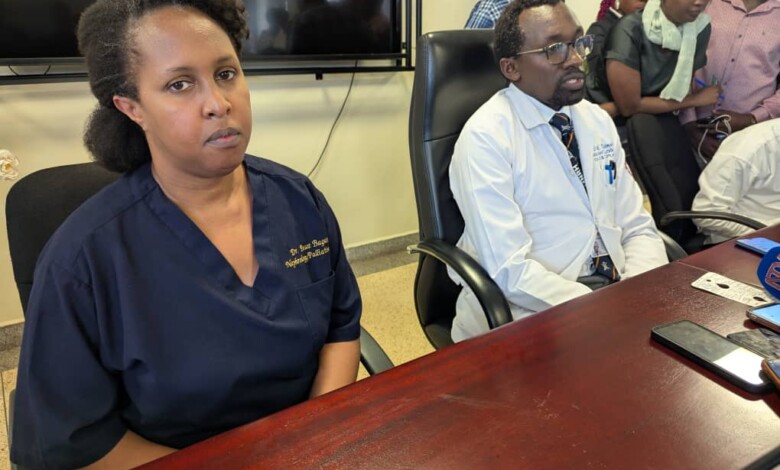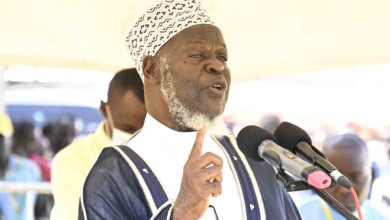
By Shahista Namale
Surgeons at Mulago National Referral Hospital have successfully performed four new kidney transplants, bringing the total number of such procedures in Uganda to nine since the country’s first transplant in December 2023. The latest surgeries were conducted with support from a team of specialists from the United Kingdom’s Kidney Care initiative.
Among the recent recipients is a 16-year-old girl, marking Uganda’s first paediatric kidney transplant, and a 57-year-old man, the oldest patient to undergo the procedure so far.
Dr. Peace Bagasha, a nephrologist at Mulago Hospital, shared the emotional journeys of the latest transplant cases:
“We had a 23-year-old lady who received a kidney from her 26-year-old brother, and a 43-year-old father who donated to his 22-year-old son.”
Speaking to journalists at the hospital’s conference room, Dr. Bagasha explained that each patient underwent rigorous assessment before qualifying for the transplant.

The recipients were selected after a rigorous vetting process from among more than 400 Ugandans currently dependent on dialysis, a costly procedure where machines perform the kidney’s blood purification role. Priority was given to cases where the donor and recipient were close relatives.
“Initially, to be eligible for a transplant, one must be a dialysis patient. All 400 patients on dialysis in Uganda are potential candidates,” Dr. Bagasha noted.
However, affordability remains a hurdle.
Dr. Frank Asiimwe, Mulago’s Resident Transplant Surgeon, revealed that recipients must be able to sustain lifelong anti-rejection medication, costing at least Shs 1.5 million per month.
“We’ve had to tighten eligibility criteria, considering only those who can afford post-transplant care in case the hospital can’t provide ongoing support,” Dr. Asiimwe said.
Legal framework in place, but Council still missing
Uganda’s Human Organ Donation and Transplant Act (2023) mandates that organ donations be voluntary and free of coercion. However, the Uganda Organ Donation and Transplant Council, required to regulate these procedures, is yet to be operationalized.
At the Ministry of Health, Dr. Ronny Bahatungire, Director of Clinical Services, acknowledged the gap but assured progress.
“I am happy to announce that this financial year, the Organ Transplant and Donation Council will be signed into force. We want to assure the public that all activities will be regulated by law,” Dr. Bahatungire noted.
He also highlighted the financial burden of overseas referrals, with four out of ten medical evacuations being for kidney transplants, costing patients up to $25,000—excluding travel and accommodation.
“Expanding local transplant services will save lives and reduce financial strain on families,” he emphasized.
Health officials urged Ugandans to prevent kidney disease by managing conditions like diabetes, high blood pressure, and malaria, which severely affect kidney function.







